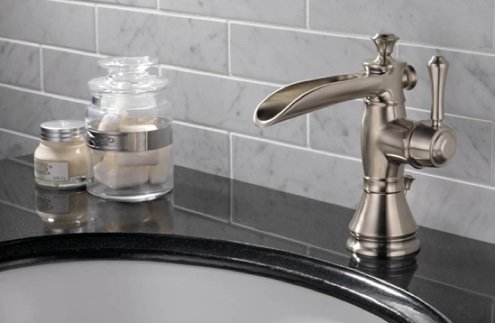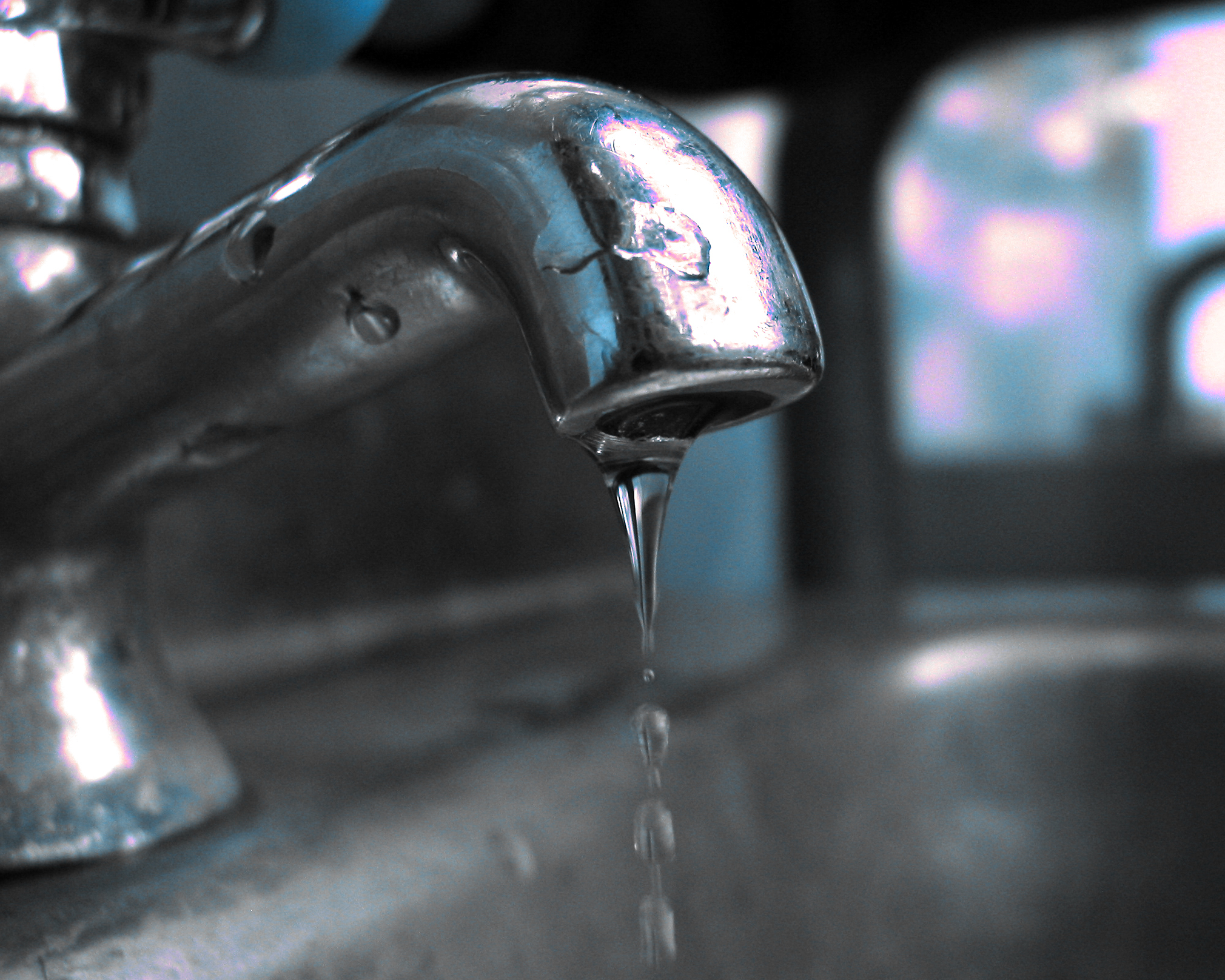Which It's Mandatory to Correct a Broken Faucet
Which It's Mandatory to Correct a Broken Faucet
Blog Article
The article which follows pertaining to What Causes Leaky Faucets & How To Fix Them is exceptionally attention-grabbing. Have a go and draw your own personal results.

Trickling taps could appear like a minor trouble, yet their impact surpasses simply the aggravation of the audio. From drainage to sustaining unnecessary monetary expenses and health and wellness risks, overlooking a trickling faucet can lead to numerous consequences. In this post, we'll explore why it's crucial to resolve this common house problem without delay and successfully.
Wastage of Water
Ecological Effect
Trickling faucets add considerably to water wastefulness. According to the Environmental Protection Agency (EPA), a single tap trickling at one drip per second can lose more than 3,000 gallons of water annually. This not only pressures water resources but likewise influences environments and wildlife based on them.
Financial Prices
Increased Water Expenses
Past the ecological impact, leaking taps can pump up water bills considerably. The built up wastage gradually translates into greater utility expenses, which could have been prevented with prompt repair services.
Possible Building Damage
Additionally, prolonged trickling can lead to harm to components and surfaces surrounding the faucet. Water buildup can trigger staining, corrosion, and even architectural concerns if left unattended, leading to extra fixing costs.
Health Issues
Mold and Mold Development
The constant existence of wetness from a leaking faucet produces a suitable setting for mold and mildew and mold development. These fungi not only compromise indoor air quality however likewise pose health and wellness risks, particularly for people with respiratory system conditions or allergic reactions.
Waterborne Illness
Stationary water in dripping faucets can come to be a breeding place for germs and other pathogens, enhancing the risk of waterborne diseases. Impurities such as Legionella bacteria grow in stationary water, potentially leading to significant ailments when ingested or inhaled.
Do it yourself vs. Expert Repair
Pros and Cons of Do It Yourself Repair Work
While some may try to take care of a leaking faucet themselves, do it yourself repair work feature their very own set of difficulties. Without proper understanding and devices, DIY efforts can exacerbate the problem or lead to incomplete fixings, prolonging the problem.
Advantages of Working With a Professional Plumber
Hiring an expert plumber makes certain that the underlying source of the dripping faucet is addressed efficiently. Plumbing technicians have the proficiency and equipment to diagnose and fix tap concerns effectively, saving time and reducing the threat of more damages.
Step-by-Step Guide to Fixing a Dripping Tap
Devices Needed
Before trying to repair a dripping faucet, gather the needed tools, consisting of an adjustable wrench, screwdrivers, replacement parts (such as washers or cartridges), and plumber's tape.
Usual Tap Issues and Their Solutions
Determine the kind of faucet and the particular issue creating the drip. Typical issues consist of worn-out washers, rusty valve seats, or defective O-rings. Describe maker instructions or online tutorials for detailed assistance on repair services.
Safety nets
Regular Upkeep Tips
To stop leaking taps, carry out regular maintenance such as cleansing aerators, examining for leakages, and changing worn-out components promptly. Furthermore, think about mounting water-saving tools or upgrading to a lot more reliable fixtures.
Significance of Prompt Fixes
Addressing trickling taps as quickly as they're seen protects against more water wastefulness and possible damage, ultimately saving both water and cash over time.
Effect On Residential Property Value
Assumption of Well-Maintained Building
Preserving a residential property in good condition, including addressing maintenance issues like leaking taps, improves its regarded value and worth among possible buyers or occupants.
Impact on Resale Worth
Qualities with well-maintained plumbing fixtures, consisting of taps, command higher resale values in the property market. Addressing dripping faucets can add to a favorable impression during property evaluations and settlements.
Ecological Obligation
Specific Payment to Preservation
Taking duty for dealing with trickling taps straightens with more comprehensive initiatives towards water preservation and environmental sustainability. Every person's activities jointly make a substantial influence on protecting valuable resources.
Lasting Living Practices
By focusing on prompt repairs and taking on water-saving routines, individuals contribute to sustainable living practices that benefit both existing and future generations.
Final thought
Dealing with a dripping tap goes beyond plain comfort; it's a necessary action toward saving water, reducing economic costs, and guarding health and wellness and home. Whether via DIY fixings or professional help, acting to deal with dripping faucets is a little yet impactful means to promote responsible stewardship of resources and add to a much healthier, more sustainable future.
How to Fix a Leaky Faucet: Step-by-Step Repair Guide
A leaky faucet may seem like a simple annoyance, but if it's not fixed promptly, that leak could cost hundreds to potentially thousands. From water damage to mold, mildew, and high water bills, even a tiny leak can be catastrophic if left unattended. Damage like this can even affect the overall value of your home, so it's important to take the right approach for leaky faucet repair. You may need the help of a plumber in some cases, but we've got a few tips you can try on how to fix a leaky faucet before calling the pros.
Four Faucet Types
When you're learning how to fix a leaky faucet, the first step is knowing what kind of faucet you're working with! There are four common types.
Cartridge Faucets
Cartridge faucets come in one- or two-handled varieties. In one-handled cartridge faucets, hot and cold water combines in a single cartridge. In the two-handled versions, hot and cold water are controlled separately and mixed in the faucet.
Ball Faucets
Ball faucets have a single lever you push up and down to adjust the pressure and rotate to change the temperature. A slotted metal ball controls the amount of water allowed into the spout.
Compression Washer Faucets
They're the oldest type of faucet, but they're still used in many homes — especially older ones. Compression faucets have two separate handles that, when turned, raise or lower the washer that seals a water valve. This valve stops water from flowing through the faucet when it is turned off.
Disc Faucets
Disc faucets rarely need to be repaired due to their maintenance-free design. The water flow is controlled by two discs — the upper one raises and lowers against a fixed lower disc, creating a watertight seal. If your disc faucet starts leaking, you may need to replace the seals or clean residue buildup from the inlets.
Fixing a Leaky Faucet
Step 1: Turn Off the Water
Whether you're learning how to fix a leaky bathtub faucet or how to fix a leaky kitchen faucet, always turn off the water supply to your working area when you're fixing a leak. The last thing you want is a flood added to your list of things to fix.
Look for the shutoff valves below your sink or around the tub and turn them clockwise to stop the water flow. If your faucet doesn't have shutoff valves, you may need to turn off the water for the whole house. Check to make sure it's off by turning the faucet on. If nothing comes out, you're ready to start the repair.
Step 2: Take Apart the Faucet
How you disassemble your faucet depends on the type of fixture you have. You can use a flathead screwdriver to remove the caps on top of the handle or handles for cartridge and compression faucets. Inside, you should see handle screws. Unscrew these with a screwdriver to remove the handle.
Disc- and ball-style faucets will typically have an inlet screw near the handle, and removing that will reveal the interior of the faucet.
Detach the Valve Stem
For cartridge- and compression-style faucets, you'll see the inner valve stem or cartridge once you remove the faucet handles. If you have a compression faucet, unscrew the brass valve stem. If you have a cartridge faucet, pull out the cartridge. If your cartridge has been in place for a while, it may require some tools or extra force to remove it due to mineral deposits.
Examine and Replace Parts
Once you've removed the parts, check them out to confirm what needs to be replaced. You may see corroded rubber washers, O-rings, stems, or cartridges. On a ball-style faucet, check the seats and springs for damage.
If you need to repair a leaky disc faucet, check the inlet and seals on the lower disc.
Once you determine what parts must be replaced, visit your local hardware store. Bring the damaged parts with you to ensure you can purchase the correct components to replace them.
Clean Valves and Faucet Cavity
If you've removed a stem or cartridge, you may notice mineral buildup in the faucet's threads. Use white vinegar to clean the valve seat by soaking it for a few minutes, then scrub it away with a soft toothbrush and rinse with warm water. You can also clean the interior of the faucet in the same way.
Reassemble the Faucet
Once your faucet is cleaned and the required parts have been replaced, it's time to reassemble it. Put the pieces back together and slowly turn the water supply back on. Doing this slowly is crucial because too much initial water pressure can damage the new hardware you've just installed.
https://homewarranty.firstam.com/blog/how-to-fix-leaky-faucet

As an enthusiastic reader on Why Are My Faucets Dripping (And Can I Fix It Myself)?, I thought sharing that excerpt was a good idea. Be sure to take the time to distribute this article if you appreciated it. We cherish your readership.
Report this page